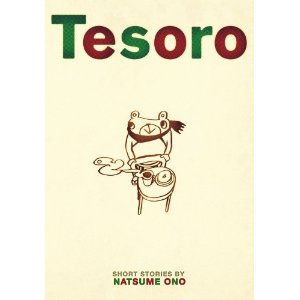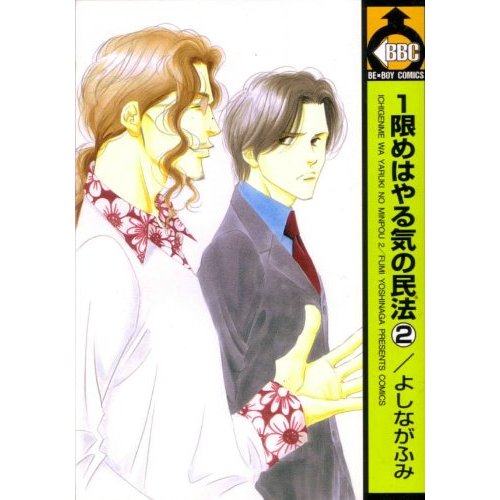For the Manga Moveable Feast, the one title I had sitting on my to-read stack from the Signature line was Natsume Ono’s Tesoro. I enjoyed this volume of short stories and doujinshi, but it might be mainly for Natsume Ono completists. I enjoyed this volume very much, but I tend to be an Ono fan. I think that the only work of hers translated in English that I haven’t read is Not Simple, and the art style in these stories seems to echo the cover of that volume. The facial expressions and thin linework are recognizably Ono’s work, but instead of the more elongated character designs seen in House of Five Leaves and Gente, the proportions of the people in this manga are much more short and childlike. This cartoony style suits the slice of life nature of the stories, as Ono quickly dashes off observations about family relationships and food. This volume will appeal more to fans of Gente and Ristorante Paradiso than House of Five Leaves.
I tended to enjoy the stories in the first half of the volume more than the ones in the back. Standouts to me were the story “Moyashi Couple,” about an aging husband and wife that worry how they are perceived by their neighbors and “Three Short Stories About Bento” in which the traditional Japanese lunch is a main character in the lives of different people. Ono is at her best when capturing quick illuminating moments that portray the relationships between people and their surroundings. Fans of Gente will enjoy the middle part of this volume, with many stories set in Italy. The story I couldn’t really get into was Senza Titolo #4, about a man getting out of prison who needs to deal with the expectations of all the people who are waiting for him. For some reason that story seemed like it was cobbled together from sources instead of having the more authentic feel of the other works in this manga, which feel very observational and true to life. Tesoro is essentially a collection of Natsume Ono B-sides, and if you’re already a fan of her work you will most likely enjoy it in order to get a glimpse of her earlier art and storytelling style.



